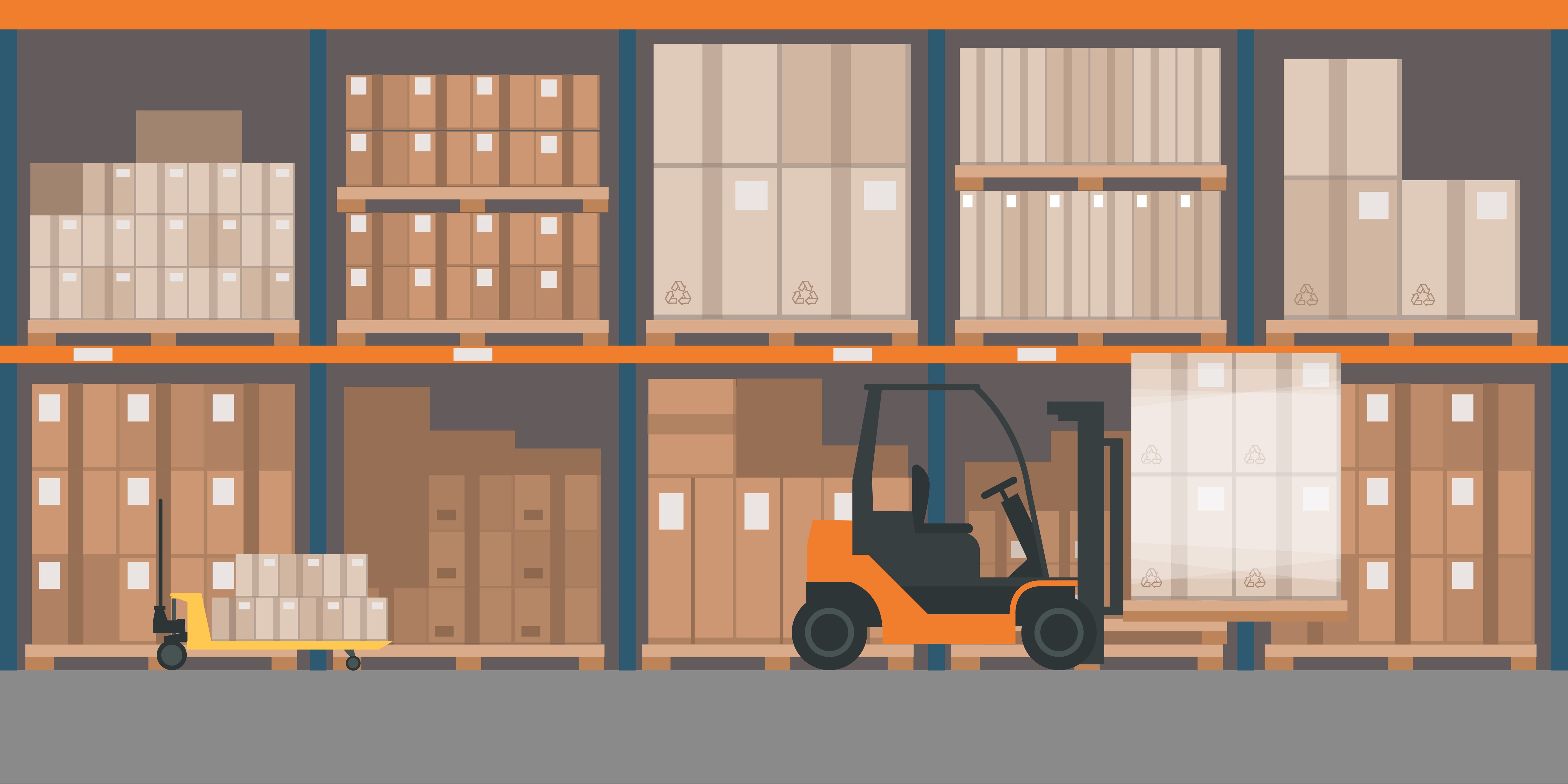Organization plays an integral role in optimizing warehouse operations. Think about it: when inventory is stored optimally, you can effectively boost the speed and accuracy of the picking and packing process. Often, businesses will place inventory wherever there is empty space — without considering how merchandise placement can impact overall output.
Sure, this method could work short term. However, as your business scales and product lines expand, it’s pivotal to actively improve on your warehousing strategy and decrease inventory carrying costs to drive long-term profitability. How? By harnessing the power of warehouse slotting.
Regardless of size, every business can reap the benefits of proper warehousing slotting. Growing and established businesses can both leverage slotting to optimize warehouse space, improve picking performance, and minimize costs associated with inventory management. So let’s dive in. What is warehouse slotting? Why is it so advantageous, and how can your organization implement it moving forward?

What is Warehouse Slotting?
Slotting refers to organizing your warehouse to maximize efficiency and space. Warehouse slotting can also serve as a tactic to reduce costs and strengthen inventory management processes. Product type, SKU number, and other characteristics are often used to facilitate organization when slotting inventory. For instance, products could be organized by their size and weight, or by order history if the item is popular or hardly ever ordered.
Benefits of Warehouse Slotting
Let’s be honest: the prospect of reorganizing your warehouse space can feel like a pretty daunting task. Not to mention, time-consuming. After all, the project requires you to formulate a strategy for optimally storing inventory, moving said inventory, and doing so in a manner that will not disrupt the picking process.
And while it will take time to deploy, slotting inventory offers a myriad of benefits, like positively impacting your bottom line. Here are three ways warehouse slotting can drive efficiency and optimize your fulfillment operations.
1. Improved Storage Capacity
Warehouse slotting allows your business to increase storage capacity. You can identify opportunities for recapturing underutilized space by rethinking how inventory is being stored. Investing time in optimizing space can help reduce dollars spent on securing additional (and unnecessary) storage room.
2. Quicker Picking & Decreased Errors
By employing warehouse slotting, your business can eliminate errors, like items getting lost, damaged, or misdelivered, to drive a stronger customer experience. Order accuracy can effectively boost customer loyalty and retention over time. What’s more, by storing inventory in a manner that is easy for the picker to understand (i.e., weight, size, product type, etc.), it’ll remove the guesswork from locating items and lend to a quicker picking process.
3. Reduced Carrying Costs
Through process improvement and maximizing warehouse space, you can increase throughput and decrease your overall carrying costs. By having an efficient organization to your warehouse, you can make it easier to pick and pack products and restock inventory. The less time you spend searching for different products to fulfill orders, the more orders you can fulfill in a day.
Ways to Approach the Warehouse Slotting Process
To get started, you’ll want to conduct a comprehensive audit of your inventory and warehouse space to identify opportunities for improvement. As you move through the process, ask yourself:
-
Are there any items typically purchased together?
-
How much (if any) unused warehouse space do we have?
-
Are products stacked efficiently or too close together?
Formulating a plan before repositioning inventory is crucial to avoid damaging or misplacing products. Similarly, you’ll want to avoid causing unnecessary confusion and disrupting current picking operations.
Get Inventory Organized
For larger spaces, reorganizing your inventory may take time. However, it’ll conserve valuable dollars and decrease headaches in the long run. Additionally, getting organized will effectively free up storage space, lower carrying costs, and lend to a more productive picking process. The goal is to incorporate things like labeling to make it as easy as possible to locate and access products. You can also use software equipped with warehouse slotting algorithms to help you get started. As you grow, you can automate some of the decisions.
Utilize the Right Warehouse Management System (WMS)
Access to the right technology, like a warehouse management system (SWIMS), can be an invaluable asset for businesses looking to streamline the optimization process. You can generate crucial insights around product placement and grouping by incorporating data, such as picking level, SKUs, and order history, into the warehouse slotting process. Your WMS will also facilitate inventory management in real-time, help you scale easily, and reduce picking/packing and shipping errors.
Align Yourself with a 3PL to Facilitate Warehouse Slotting
With 38 warehouses powered by cutting-edge warehouse management technology, Smart warehousing has the tools and expertise to accommodate your fulfillment needs, including implementing a warehousing slotting strategy. As a 3PL, our team handles everything from inventory storage and packaging to shipping and return management to drive long-term, scalable business growth.
To learn more about how we can create a personalized solution that can uniquely address your needs, contact the Smart Warehousing team today!


